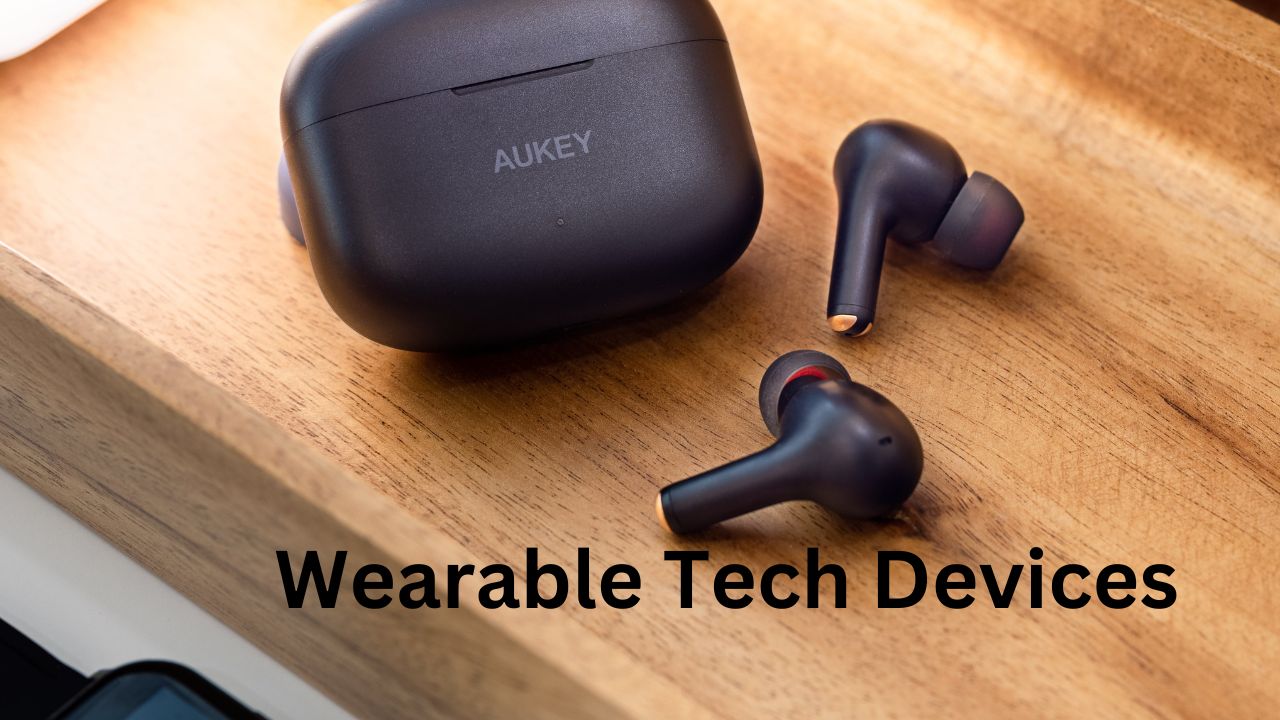5 Best Wearable Tech Devices for 2024
What are Wearable tech devices?
Wearable tech devices are electronic devices that are designed to be worn on the body. They come in many different forms, from smartwatches and fitness trackers to smart glasses and hearables. Wearable tech devices can track a variety of data, including heart rate, steps taken, calories burned, and sleep patterns.
Here are some of the most popular types of wearable tech devices:
This article explores the various types and features of wearable tech devices, their benefits, and applications, as well as the challenges and limitations they present. Additionally, we delve into the impact of wearable tech devices on health and fitness, the privacy and security concerns associated with their usage, and the exciting future trends and innovations that lie ahead in this rapidly evolving field.
1. Smartwatches:
Smartwatches are like mini-computers for your wrist. They can tell time, track your fitness activity, display notifications from your smartphone, and even make calls. Some popular smartwatches include the Apple Watch, Samsung Galaxy Watch, and Fitbit Versa.

Image Source: Amazon.in
2. Fitness trackers:
Fitness trackers are designed to track your physical activity, such as your steps taken, calories burned, and heart rate. They can also be used to track your sleep patterns and set goals for yourself. Some popular fitness trackers include the Fitbit Charge 5, Garmin Venu 2 Plus, and Amazfit Bip 3 Pro.

Image Source: Amazon.in
3. Smart glasses:
Smart glasses are glasses that have a small computer built into them. And are used for displaying information, such as directions or notifications, or to interact with other devices. Some popular smart glasses include the Google Glass and the Nreal Air.

4. Hearables:
Hearables are devices worn in or around the ear. They are used for listening to music, making calls, or tracking your fitness activity. Some popular hearables include the Apple AirPods, Samsung Galaxy Buds, and Sony WF-1000XM4.

5. Smart Clothing: Smart clothing takes fashion to the next level by integrating technology into your closet. From self-heating jackets to workout gear that measures your performance, these garments can track your movements, monitor your vital signs, and even adjust to your body temperature. It’s like having a personal stylist and a tech wizard rolled into one.
Benefits and Applications of Wearable Tech Devices
1. Health Monitoring and Fitness Tracking
Wearable tech devices are your fitness buddies, keeping you motivated and accountable. Whether you want to track your daily steps, monitor your heart rate during workouts, or keep an eye on your sleep patterns, these devices provide valuable insights to help you achieve your health goals.
2. Enhanced Communication and Connectivity
Gone are the days of fumbling for your phone in the bottomless pit of your bag. With wearable tech, staying connected is as easy as a flick of the wrist. You can answer calls, read messages, and even navigate using voice commands, all without missing a beat.
3. Assistive and Medical Applications
Wearable tech isn’t just about convenience; it can be a lifeline for those with disabilities or medical conditions. From smart glasses for the visually impaired to smartwatches that detect seizures, these devices have the power to improve the lives of individuals with unique needs.
Challenges and Security
1. Battery Life and Charging
While wearable tech devices have come a long way, their power sources are still a limiting factor. We eagerly await the day when our devices can last as long as our determination to conquer the world.
2. Data Security and Privacy
Wearable tech devices collect a wealth of personal data, from your daily activity to your sleep patterns and even your location. Striking the balance between functionality and protecting your privacy is a challenge that tech companies continue to address.
3. Unauthorized Access and Data Breaches
As with any connected device, they are susceptible to unauthorized access and data breaches. The sensitive health information stored on these devices can be valuable to malicious actors. Manufacturers must prioritize robust security measures, including encryption and authentication protocols, to protect user data and ensure privacy.
4. Ethical Considerations
Beyond privacy and security concerns, it also raise ethical considerations. Striking the right balance between personal privacy and data utilization is essential, requiring clear guidelines and regulations to protect user rights.
FAQ
1. What are the privacy concerns associated?
Privacy concerns are a significant consideration when it comes to wearable tech devices. These devices collect and store personal data, including health information, location data, and user behavior.
There is a risk of unauthorized access, data breaches, and potential misuse of this sensitive information. Users need to understand the data collection and usage policies of tech devices and take necessary precautions to protect their privacy.
2. Can it be worn by everyone?
Wearable tech devices have various applications and can cater to different user needs. However, individuals with medical conditions need to consult with their healthcare providers before using these devices.
While these devices can assist in monitoring health conditions, it is crucial to ensure their accuracy and reliability for specific medical purposes. Healthcare professionals can guide the appropriate use and suitability of wearable tech devices for individuals with medical conditions.
4. How are wearable tech devices evolving in the future?
The future of such tech devices holds immense potential for innovation and advancements. Integration with artificial intelligence (AI) is a significant trend, enabling devices to analyze data, provide personalized insights, and anticipate user needs.
Advancements in sensor technology will enhance the accuracy and capabilities of wearable devices.


